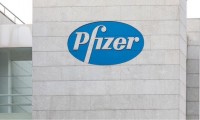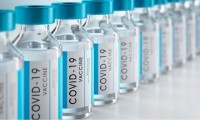-
Valneva Reports Strong Phase III Chikungunya Vaccine Data After Merck’s Exit from Race
- Source: drugdu
- 116
- June 15, 2023
-
BioNTech to defend itself against COVID-19 vaccine injury claim in Germany
- Source: drugdu
- 93
- June 14, 2023
-
Updated Covid vaccines need to target XBB omicron variants this fall, FDA staff says
- Source: drugdu
- 102
- June 14, 2023
-
China Approves the World’s First Vaccine against XBB Descendent Lineages of SARS-CoV-2 for Emergency Use
- Source: drugdu
- 151
- June 12, 2023
-
GSK’s RSV vaccine approved by EC for older adults
- Source: drugdu
- 116
- June 9, 2023
-
Moderna, Pfizer Hit with New COVID Vaccine Patent Lawsuits
- Source: drugdu
- 104
- June 9, 2023
-
Moderna and Merck cancer vaccine used with Keytruda reduces risk of deadly skin cancer spreading
- Source: drugdu
- 129
- June 7, 2023
-
Look out, GSK. Pfizer has its adult RSV vaccine approval and is raring to launch
- Source: drugdu
- 125
- June 5, 2023
-
While Pfizer, BioNTech agree to cut COVID vaccine supply to Europe, Moderna sets up shop in China
- Source: drugdu
- 141
- May 31, 2023
-
European Commission to receive fewer Pfizer-BioNTech vaccine doses under amended contract
- Source: drugdu
- 121
- May 30, 2023
your submission has already been received.
OK
Subscribe
Please enter a valid Email address!
Submit
The most relevant industry news & insight will be sent to you every two weeks.













